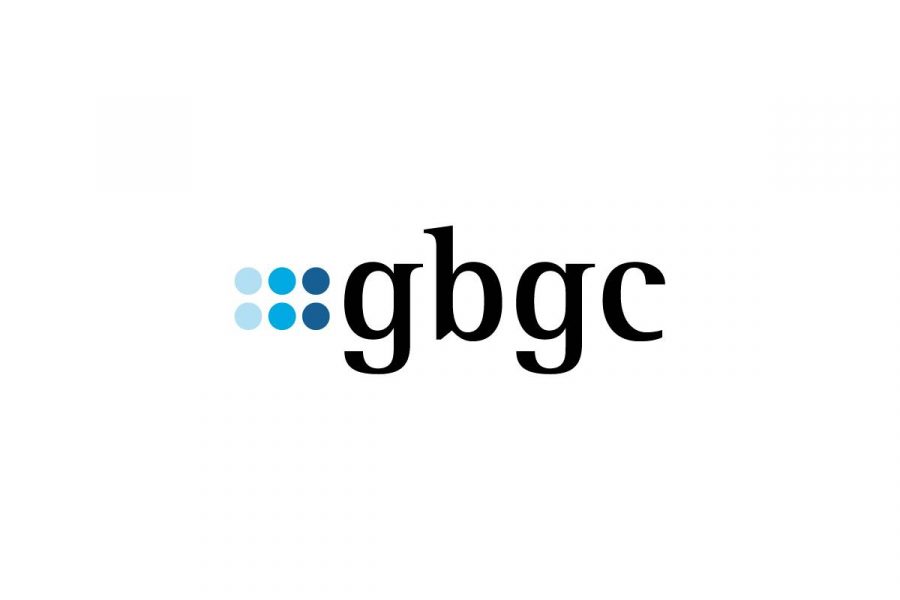GBGC addresses crypto gambling

Global Betting & Gaming Consultants has released its whitepaper on the crypto gambling industry as it continues to grow.
Over 12 years after the Bitcoin blockchain was first released, crypto gambling has become a popular segment in the iGaming industry and continues to grow.
That’s why Global Betting & Gaming Consultants (GBGC) has published a whitepaper on the segment after going through its history and characteristics.
Crypto casinos first appeared in 2013, with Malta-licensed Vera & John as one of the early adopters, announcing it was accepting bitcoin as a payment option. However, regulatory concerns from the Malta Gaming Authority pushed them to remove the cryptocurrency from the menu.
Today, there are hundreds of gambling websites that have cryptocurrency as a payment option. According to GBGC, bitcoin is the most popular, followed by ethereum and litecoin.
As the segment gained popularity, the Crypto Gambling Foundation was created and it currently has 14 members: five licensed in Curacao, with the remaining not displaying any licensing information.
The Foundation mantra is “provably fair” a concept born due to lack of transparency and made possible by the blockchain. Before crypto gambling, random numbers were generated by the host of the game, leaving clients to trust they were not manipulating results.
Fair gaming algorithms were created and contributed to randomisation, removing any possibility of deception or cheating, as it forces the house to reveal its seeds at the end of each game. With these algorithms, players can audit results and CBGC “strongly believes in widespread use of provably fair algorithms throughout the gaming industry.”
According to CBGC, crypto gambling growth could be growing due to intrusive policies by gambling regulators, which require more checks on customers, their spending and identity.
Crypto gambling and regulation
Curacao
The most common jurisdiction for crypto gambling operators to get a license from is Curacao, even though CBGC revealed most websites studied don’t make it clear whether they even have a licence. This would save money for companies, as they don’t pay regulatory and compliance costs.
There’s a perception around the provably fair concept that there could be no need for a licence with proven algorithms. However, most jurisdictions still consider this to be gambling with money, so they expect them to be licensed with all the KYC, AML and social responsibility requirements.
The master licensor set up in Curacao seems to be the main reason for its popularity in the crypto gambling space. However, its regulatory situation is changing in 2021.
As the Covid-19 pandemic caused the country’s economy to shrink, they’re looking for help from Netherlands’ Kansspelautoriteit, which had previously criticised the local industry. Therefore, the regulator agreed to give support to its peer, only if it were to change its licensing system to abandon the system of master and sub-licences by March 1. Also, Curacao has to ensure operators “act in accordance with the laws and regulations of the countries they target” by September 1 and the regulator is obliged to ensure all operators pay the requisite taxes.
Such requirements would force crypto gambling companies to comply or leave the country, which would most likely be the case.
Isle of Man
The Isle of Man has embraced both blockchain technology and cryptocurrencies.
It launched Blockchain Isle of Man, a hub dedicated to growing the sector on the island. Moreover, the Isle of Man Financial Services Authority published guidance setting out its position on crypto assets.
Regarding the gambling segment, the Gambling Supervision Commission offers a B2B Software Supplier licence for token and blockchain platforms and software.
There are several websites licensed in the Isle of Man, including Real Time Games Holdings, Quanta Technology, Eminence Ltd, and Shelgeyr Limited.
Malta
The MGA has been studying the segment since 2014 and has conducted several actions like a “call for interest” or even the DELTA Summit, a blockchain and digital innovation event.
Moreover, Moneybite has just secured a Virtual Finance Assets license from the Malta Financial Services Authority last May. The Bitcoin payment provider targets iGaming operator, which means good news for the segment.
The regulation of cryptocurrencies, and associated activities, is following a similar path to internet gambling. The early adopters are the smaller, often offshore, island economies, whilst the world’s larger economies are taking a more cautious approach.
The Isle of Man and Malta demonstrate that crypto-gambling firms can take a licence in a well-regulated, high-calibre jurisdiction.
As of mid-2021, however, it is clear that some crypto-gambling firms do not currently value the credibility being licensed can bring.
Users of cryptocurrency might like this stance because one of the appeals of cryptocurrency is that it is decentralised and outside of government control.
This situation might change as the sector matures, jurisdictions like Curacao improve their regulations, and the world’s larger economies decide upon their strategy for cryptocurrency and its associated uses.
Customer benefits
The CBGC assessed the multiple benefits cryptocurrencies and crypto gambling bring to customers, including:
An outlet for coins: gambling represents one activity that coin holders can easily spend their coins on, with the added benefit that they might win more coins.
Anonymity: Crypto-gambling sites that hold no licence can be seen as a less intrusive option than regular companies.
Speed of sign-up and transactions: cryptocurrency transactions can be completed almost instantly and can incur lower costs than other payment methods. New accounts can also be opened more easily, partly because fewer checks are conducted on sign-up.
Fewer bet limits & affordability checks: There are generally fewer limits and checks on crypto-gambling sites, although several sites do still have maximum bet limits (varying by coin) and maximum profit limits for some games.
Caters for VIPs: crypto-gambling is better able to accommodate higher-spending VIPs – indeed, some sites are invitation only – without restricting bet amounts if a player has some winning bets.
Easier movement of funds: cryptocurrencies offer a means of circumventing capital movement restrictions like China’s, especially if there are difficulties in using traditional payment methods either to move funds or for gambling.
Crash games
One category of gaming that has been developed specifically for cryptocurrency gambling is crash games. Crash games are fast-paced, easy to understand and compelling to play.
A player places its bet and enters a multiplier they wish to cash out. Once the game begins, a graph shows the multiplier level rising from 1.00x until it crashes in just a couple of seconds. All bettors with lower multipliers than the one where the game stops win, and all those that didn’t reach their target, lose.
GBGC analysed the performance of one long-standing crash game.
• Total amount wagered over +/- 5 years: BTC 825,000 (equivalent to $29.3 billion 7/2021)
• Total Return to players (98.8%): BTC 815,000 (equivalent to $28.9 billion 7/2021)
• Gross win (1.2%): BTC 10,000 (equivalent to $355 million 7/2021)
GBGC recorded the rounds played over a 10-minute period (Bitcoin price = $34,294):
• 23 rounds completed
• Average players per round: 157
• Total Bits14 wagered: 742,410 (0.742 of a Bitcoin; $25,460)
• Highest wagering round: 84,374 Bits ($2,893)
• Largest individual wager: 45,576 Bits ($1,562)
Threats and issues
One of the main threats for the niche is governments and regulators and their attitude towards the segment’s development. As the blockchain’s appeal for users is mostly due to anonymity, the authorities are actually concerned about it.
Moreover, Decentralised gambling applications (Dapps) built on a blockchain are the most popular among crypto gambling operators. Their nature when deployed on the Ethereum blockchain includes no owners, free from censorship, anonymous login, encryption, and more, which sparks the government’s concerns.
According to CBGC, governments have hinted how they’d act on crypto, including:
• Controlling the cryptocurrency mining or creation process – attempts to licence or tax?
• Claiming environmental concerns about the energy-intensive mining process as a reason to restrict or control it.
• Require cryptocurrency transactions over a certain level to be reported to the tax authorities.
• Seek to launch their own digital currencies backed by a central bank, as a means of replacing the more volatile decentralised cryptocurrencies.
These measures could curtail the appeal of crypto-gambling to customers and/or make the operation of crypto-gambling sites more difficult and less profitable.
Volatility
Bitcoin is currently the coin most widely used and accepted for crypto-gambling. The price of Bitcoin over the years demonstrates another issue with accepting cryptocurrency as a means of payment – volatility.
In January 2012, one BTC was valued at $5.5. By January 2021, one BTC was valued at $33,108.
In the first six months of 2021, the value of Bitcoin has been at a low of $29,333 and a high of $63,365.
Banking and fiat currency
Banking continues to exert a strong influence on internet gambling, and this is true of crypto-gambling
too.
• Banks have the same concerns as governments and regulators about cryptocurrency – complying with their AML, KYC and Source of Funds requirements.
• Combine this with another activity that banks are wary of – gambling – and banking and payment processing are key issues for crypto-gambling.
• At the Betting on Football conference in 2019, gambling operators on the payments panel believed that the use of cryptocurrencies for the regulated gambling operators is being held back by the fear of losing their conventional banking arrangements.
• The US Treasury Department will require any cryptocurrency transfer worth more than $10,000 to be reported to the IRS for US citizens.
Owning a bank is an extreme but effective solution for crypto-gambling firms to solve this crypto/fiat currency problem.
• But, if that is not an option, a sector is developing to facilitate B2B cross-border cryptocurrency payments and the processing of crypto-fiat/fiat-crypto transactions.
• Coinbase is one company that states its mission as being to “build the crypto economy”, which it describes as “a more fair, accessible, efficient, and transparent financial system enabled by crypto.”
Confiscation of coins
According to the CBGC, the FBI has proven their ability to recover funds from a bitcoin wallet involved in the Colonial Pipeline ransom in June 2021. They seized $2.3 million from a wallet somehow tracking the coins and obtaining the private keys for it, but they didn’t explain how.
The FBI stated that criminals will often use US infrastructure at some stage during their criminal activity, which gives the US authorities the legal ability to act to seize the funds.
• The ability of law enforcement entities to track and seize cryptocurrencies could become a problem for crypto-gambling websites and their customers.
• Neither operator nor customer can know whether the coin has been earned as the result of criminal enterprise.
• But a player could find their winnings being seized from their wallet at a later date, if the coins paid out by the operator had previously been used to pay a ransom, for example.
• Similarly, a crypto-casino could be ordered to forfeit cryptocurrency deposits, if a player has obtained the funds through criminal activity.
Conclusion
After a decade of cryptocurrencies, there could be as many as 150 million Bitcoin users worldwide, with 18.7 million Bitcoin currently in existence.
▪ There are different methods of trying to calculate the number of Bitcoin ‘owners’ but the nature of the cryptocurrency means it is very difficult.19
• Many users simply buy and hold cryptocurrencies as an investment, so are not particularly ‘active’.
• Other are traders, buying and selling on the price movements in various coins, but not seeking to use cryptocurrency to purchase goods or services.
• The market capitalisation of the top 50 coins stands at US$ 1,385 billion (July 2021), although exactly why the coins are worth this valuation – beyond investor sentiment – is less clear.
• Gambling is one activity that holders of coins can spend on.
• Hundreds of gambling websites have launched to offer crypto-gambling services, catering for various coins.
• Many of these sites appear to hold no gambling licence but the apparent privacy and anonymity they claim to offer, combined with the ‘provably fair’ concept, is attractive to a certain category of gambler.
• Crypto-gambling’s growth is partly a reaction to the constant stream of new gambling regulation, which seeks to obtain more and more personal information about gamblers’ identity, income and behaviour, and limits people’s spending until the information is provided.
• For this reason, VIP gamblers find crypto-gambling particularly suited to their needs.
• Large volumes of coins are clearly passing through these sites. Establishing what fiat ‘value’ these coins have is difficult, given the volatility in coin prices versus the US$. Some of the larger operators could be earning the equivalent of US$ 300 million in net profit.
• The traditional tier-one gambling operators do not appear to be promoting crypto-gambling at this stage. There could be a fear as to the regulatory and compliance risk of getting involved with cryptocurrencies.
• Governments in the major economies are still formulating their approach to cryptocurrencies – their regulation and taxation.
• What they decide will ultimately determine the future of cryptocurrencies and associated activities like crypto-gambling.
• In an era where ‘global corporate tax rates are being muted, there are good arguments for both:
– The continued demand for decentralised cryptocurrencies as a store of wealth and;
– The likelihood that governments will not allow cryptocurrencies to remain a source of wealth hidden from the sight of regulators and tax authorities.











